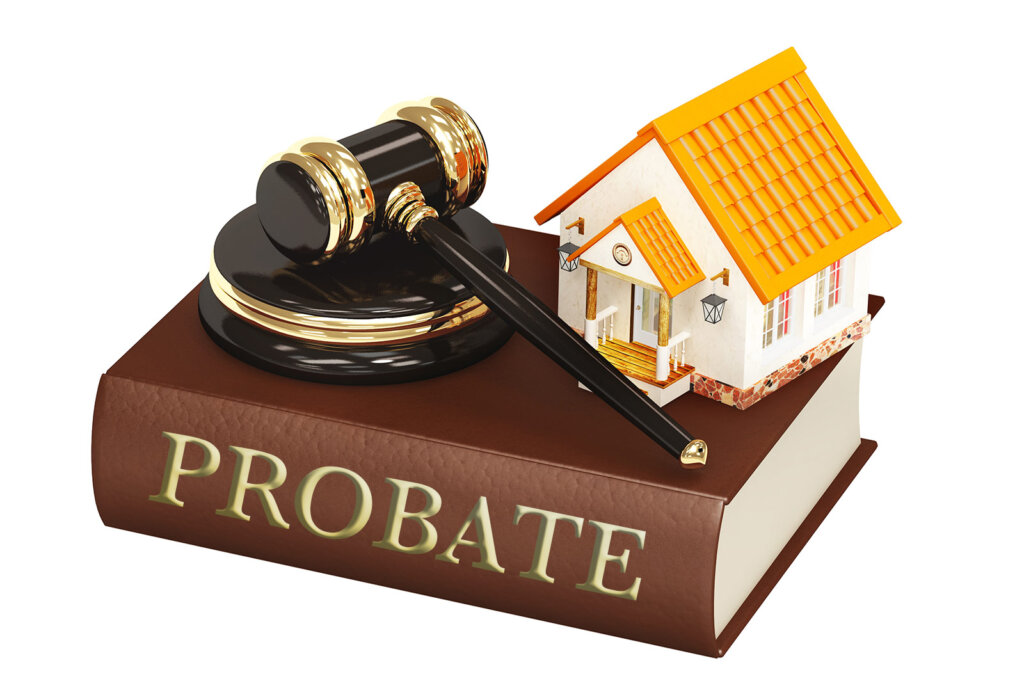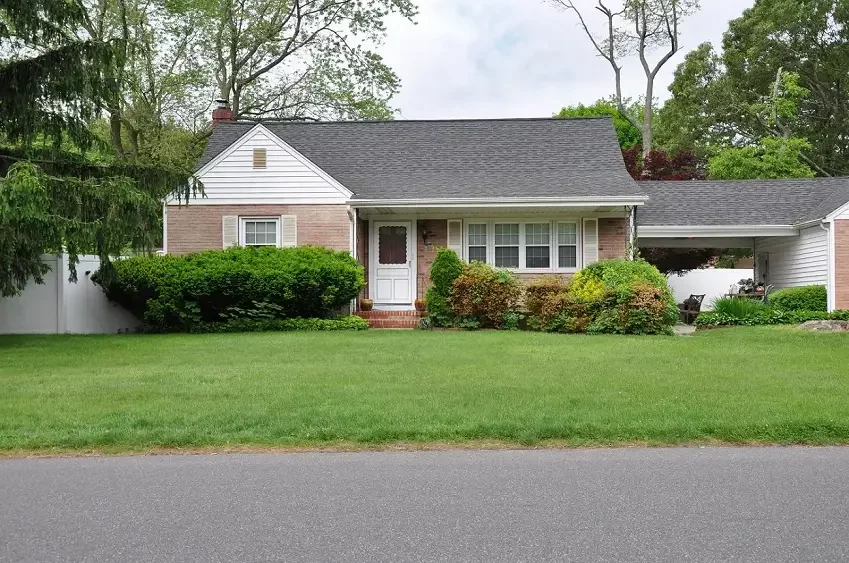Probate is a legal process that plays a crucial role in settling an estate after a person’s passing, ensuring that assets are distributed, debts are paid, and heirs are identified. For homeowners in Elkins Park, PA, selling a house during probate can be a complicated but often necessary step. In this article, we will explore how the probate process works, whether it’s possible to sell a house during probate in Elkins Park, PA, and the steps involved. We will also cover potential challenges and alternatives to selling during probate.
What is Probate?
Definition of Probate:
Probate is the legal procedure through which a deceased person’s assets, including real estate, are distributed. It also involves paying any outstanding debts and taxes, and ensuring the deceased’s will (if one exists) is executed according to their wishes. Probate is necessary to validate the will, appoint an executor, and give that person the authority to manage and distribute the estate.
How Probate Works:
- Filing the Will: The probate process begins by filing the deceased person’s will (if available) with the court. If no will exists, the estate is handled according to Pennsylvania’s laws of intestacy.
- Appointment of Executor: If the deceased person named an executor in their will, that person is legally appointed to handle the estate. If there is no executor, the court appoints one, usually a close relative or trusted individual.
- Settling Debts and Taxes: The executor must pay off any outstanding debts, including taxes, from the estate’s assets before any distributions are made.
- Distribution of Assets: Once debts are settled, the remaining assets are divided among the heirs or beneficiaries, following the instructions in the will or according to Pennsylvania’s intestacy laws.
Can You Sell a House During Probate in Elkins Park, PA?

Selling Property in Probate:
Yes, it is possible to sell a house during probate in Elkins Park, PA. The process is legal, but it’s essential that the executor handles the sale properly to ensure it complies with the probate laws in Pennsylvania. The executor has a fiduciary responsibility to act in the best interest of the estate and all beneficiaries, and they must follow a specific procedure for selling the property.
Why People Sell During Probate:
There are various reasons why someone may decide to sell a house during probate:
- Financial Needs: The estate may require liquidity to cover debts, funeral costs, or other expenses. In this case, selling the house may be necessary to fulfill those obligations.
- Property Maintenance: If the property is vacant or in poor condition, ongoing maintenance costs and taxes can quickly add up. Selling the property allows the estate to avoid the financial burden of upkeep.
- Dispute Resolution: In some cases, selling the house during probate can help resolve disputes among heirs. Dividing the proceeds from the sale is often simpler than dealing with a physical property.
Steps to Selling a House During Probate in Elkins Park, PA
1. Confirm the Executor’s Role
- The executor is the person appointed to manage the deceased’s estate and make decisions regarding the sale of property. This role is critical, as the executor is responsible for overseeing the sale and ensuring all legal processes are followed.
- The executor must have the legal authority to sell the property. This authority is granted either through the will or, if the decedent did not leave a will, by the court.
2. Obtain Court Approval
- When Court Approval is Needed: In Pennsylvania, the sale of real property during probate usually requires the court’s approval. This step is especially important if the estate involves multiple beneficiaries or if there are disputes among heirs.
- Petitioning the Court: The executor must file a petition with the court, explaining the need for the sale and detailing how the sale will benefit the estate. This petition is reviewed by the court before approval is granted. For a comprehensive understanding of the probate process and the executor’s role, you can refer to LegalZoom’s detailed guide on probate.
3. List the Property
- Listing the Property for Sale: Once court approval is obtained, the property can be listed for sale. The executor can list the property with a real estate agent specializing in probate sales, or they may choose to sell directly to a buyer, such as a cash home buyer.
- Probate Specialist: Working with a real estate agent who understands the intricacies of probate sales can help streamline the process, ensuring all legal requirements are met and the property is marketed effectively.
4. Close the Sale
- Court Involvement in Closing: After a buyer is found, the court must review the terms of the sale to ensure everything is in order. The court will typically schedule a hearing to approve the sale before it can proceed.
- Distribution of Proceeds: Once the sale is finalized, the proceeds from the sale are used to pay off any remaining debts, taxes, and costs associated with the probate. Any remaining funds will be distributed among the heirs according to the terms of the will or Pennsylvania law.
Important Considerations When Selling a House During Probate
Court Approval: Obtaining court approval is a crucial step in selling a house during probate. It ensures that the sale is legally valid and that it complies with the wishes of the deceased and the law. Without court approval, the sale cannot be completed.
Property Condition: The condition of the property plays a significant role in the sale process. If the home is in disrepair, it may attract lower offers or take longer to sell. The executor must assess the cost of repairs versus the potential sale price and decide whether selling as-is or investing in repairs is the best approach.
Tax Implications: Selling a home during probate can have tax consequences. The estate may be subject to capital gains taxes, depending on the property’s value at the time of sale. Additionally, the sale may trigger inheritance taxes, which could affect the overall proceeds distributed to the heirs. For a comprehensive understanding of estate taxes and inheritance taxes in Pennsylvania, refer to the official Pennsylvania Inheritance Tax Guide.
Debts and Liabilities: Before the property can be sold, any outstanding debts or liabilities of the estate must be settled. This includes funeral expenses, medical bills, and other debts. The sale proceeds may need to be used to cover these costs before distribution to the heirs.
Pros and Cons of Selling a House During Probate
Pros
| Pros | Cons |
|---|---|
| Quick access to cash for heirs | Potential family disputes over the sale |
| Reduces property maintenance costs | Delays due to court approval |
| Simplifies the division of assets | Property may sell for a lower value |
Cons
| Cons | Pros |
|---|---|
| Court delays | Financial relief for heirs |
| Family disputes over the sale | Avoid ongoing property maintenance |
| Potentially lower sale price | Eases estate distribution process |
How Long Does the Probate Process Take in Elkins Park, PA?
Typical Timeline for Probate in PA:
The probate process in Pennsylvania generally takes anywhere from 6 months to 1 year. This timeline can vary depending on the complexity of the estate and any disputes among heirs.
Factors That Affect the Timeline:
- Estate Size: Larger estates with numerous assets, debts, and beneficiaries can take longer to settle.
- Complexity: Estates involving complex legal issues, such as trusts, business interests, or disputed wills, may take more time.
- Court Schedule: The court’s availability and schedule can influence how quickly probate progresses.
Alternatives to Selling a House During Probate
Sell Before Probate: In some cases, property can be sold before the probate process begins. This may be done if the will specifically allows it or if the family agrees to sell the property before probate starts.
Sell After Probate: Another option is to wait until the probate process is completed before selling the house. This option may be ideal if there are no urgent financial needs or disputes among the heirs.
Sell to Investors: One of the fastest ways to sell a home during probate is to sell directly to cash home buyers or investors. These buyers often purchase properties as-is and can close quickly, eliminating the need for extensive repairs or prolonged negotiations.
Frequently Asked Questions (FAQs)
1. Can You Sell a House During Probate Without Court Approval?
In most cases, court approval is required for the sale of a house during probate in Pennsylvania. However, there may be exceptions if the will explicitly grants the executor authority to sell the property without court intervention.
2. How Long Does It Take to Sell a House During Probate in Elkins Park?
The probate process in Pennsylvania can take anywhere from 6 months to over a year, depending on the complexity of the estate and whether there are any disputes among heirs. The actual sale of the property may take additional time to complete.
3. Can Heirs Disagree on Selling the Property During Probate?
Yes, heirs can disagree on the sale of the property. If conflicts arise, the executor may need to seek legal guidance or mediation to resolve the issues. Family disputes can delay the sale and complicate the probate process.
4. What Happens If the Property Doesn’t Sell During Probate?
If the property doesn’t sell during probate, the executor may explore alternative solutions, such as reducing the price, making repairs to improve the property’s value, or waiting until the probate process is finalized before relisting it.
5. How Do I Determine the Property’s Value During Probate?
To determine the property’s value during probate, the executor may need to have the property appraised. The appraisal helps establish the fair market value of the home and ensures that the sale price is in line with the estate’s best interests.
6. Can You Sell a House in Probate Without Paying Off Debts First?
The debts and liabilities of the estate must typically be settled before the sale can proceed. The proceeds from the sale will first be used to cover outstanding debts, taxes, and administrative costs before any distribution to heirs.
7. Is It Possible to Sell to a Cash Buyer During Probate?
Yes, selling to a cash buyer or investor is a viable option during probate. Cash buyers can expedite the sale process, as they often purchase properties as-is, bypassing the need for repairs or financing approvals, which can be beneficial when dealing with probate properties.
Conclusion
Selling a house during probate in Elkins Park, PA, can be a complex process, but with the right guidance, it can be managed efficiently. Understanding the steps involved, including court approval, property condition considerations, and tax implications, is crucial for a successful sale. Whether you’re selling a property due to financial needs, maintenance issues, or family disputes, it’s important to follow the proper legal procedures.
If you’re facing the challenge of selling a house during probate, Property Buyer Today is here to help. Our experienced team can guide you through the process and provide solutions tailored to your unique situation. Reach out to Property Buyer Today today for professional assistance in navigating the probate sale process and ensuring that everything goes smoothly.

